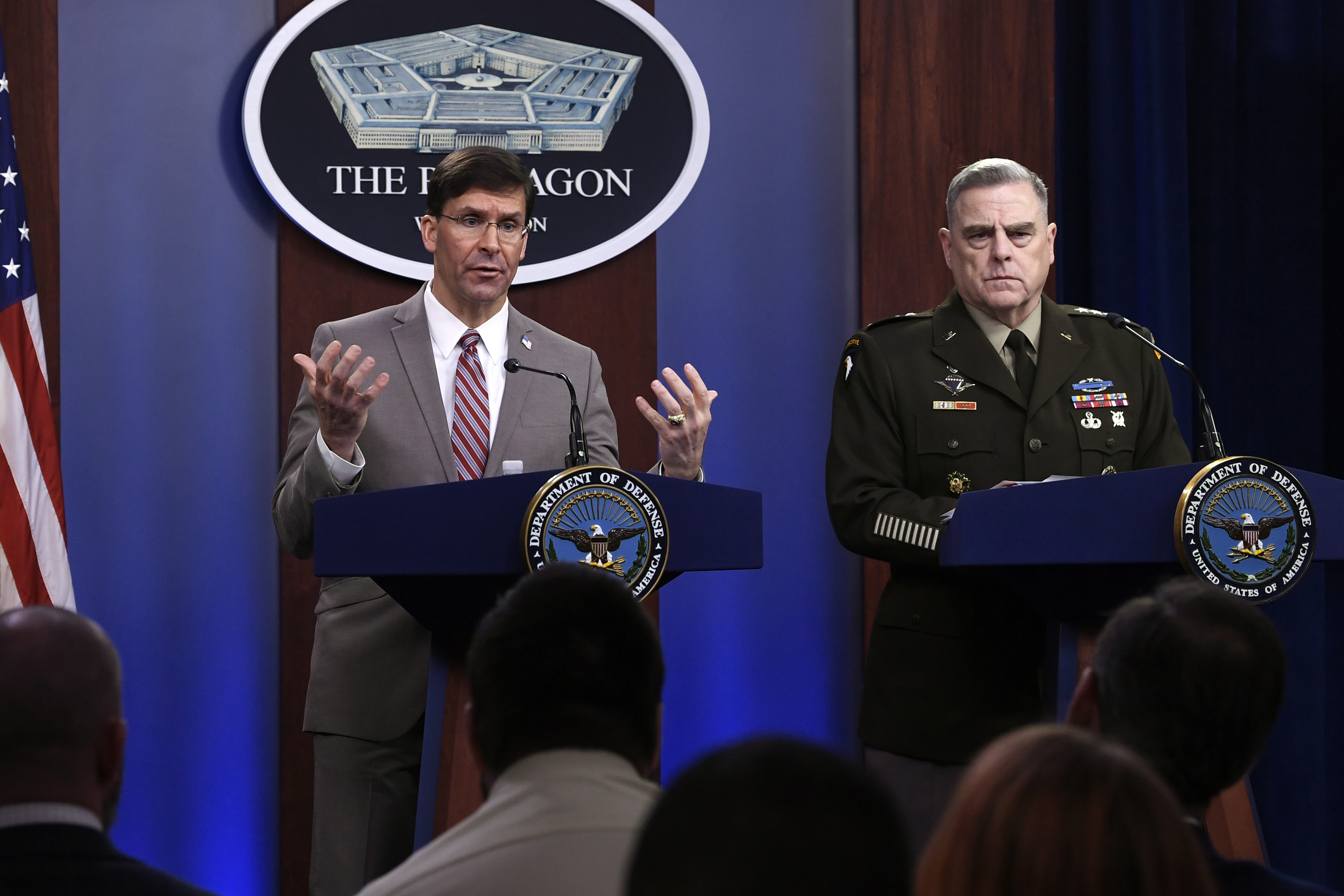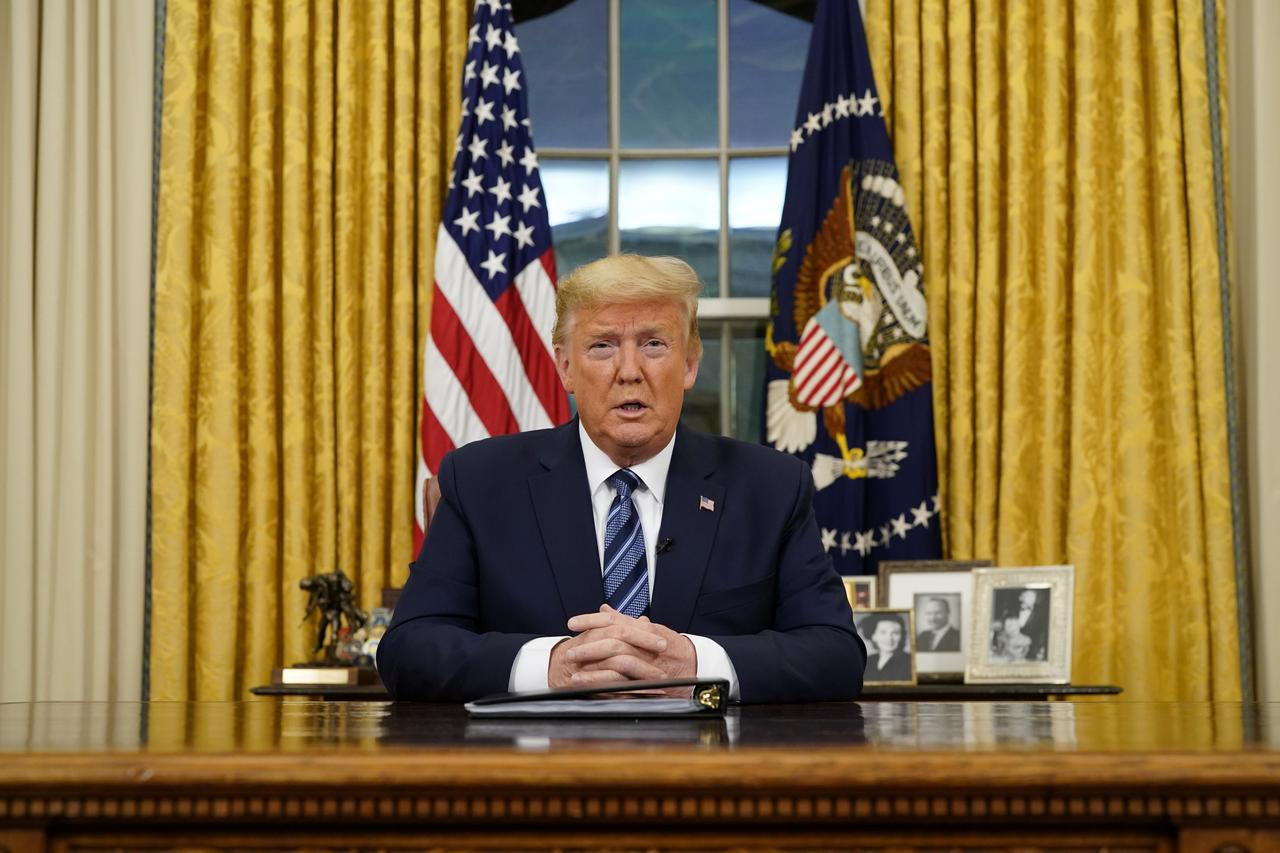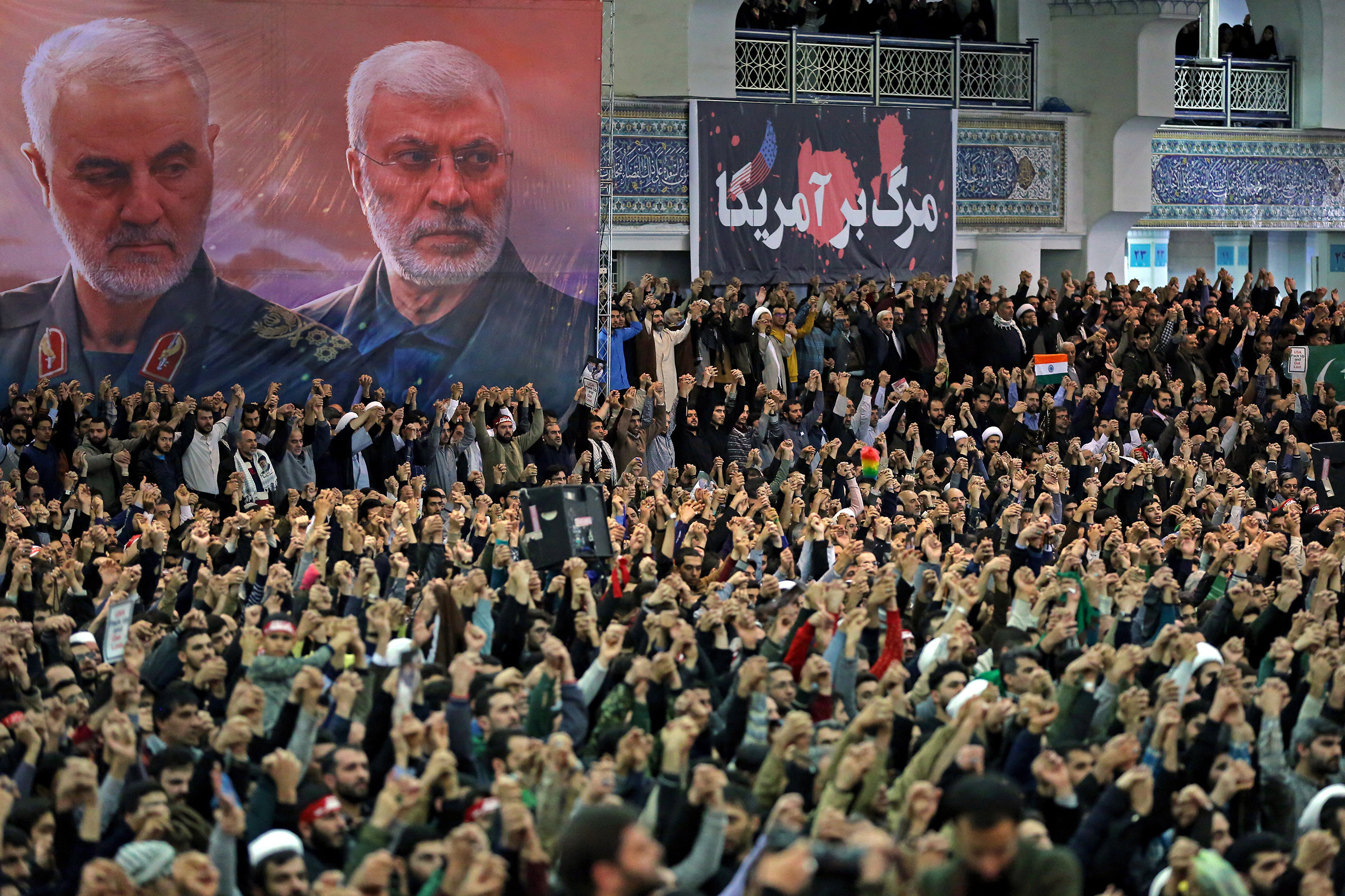The United States waged a series of precision air strikes on Thursday against an Iran-backed militia in Iraq that it blamed for a major rocket attack a day earlier that killed two American troops and a British soldier.
U.S. Defense Secretary Mark Esper, in a Pentagon statement detailing the strikes, cautioned that the United States was prepared to respond again, if needed.
"We will take any action necessary to protect our forces in Iraq and the region," Esper said.
The U.S. strikes appeared limited in scope and narrowly tailored, targeting five weapons storage facilities used by Kataib Hezbollah militants - including facilities used to store weaponry for past attacks on U.S.-led coalition troops, the Pentagon said.
The U.S. military did not estimate how many people in Iraq may have been killed in the U.S. strikes, which officials said were carried out by piloted aircraft.

U.S. Defense Secretary Mark Esper (L) speaks during a briefing with Chairman of the Joint Chiefs of Staff Army Gen. Mark Milley, at the Pentagon in Washington, DC, U.S., March 2, 2020. /AP
U.S. Defense Secretary Mark Esper (L) speaks during a briefing with Chairman of the Joint Chiefs of Staff Army Gen. Mark Milley, at the Pentagon in Washington, DC, U.S., March 2, 2020. /AP
Trump's authorization
President Donald Trump had been quick to authorize the U.S. military to respond to Wednesday's rocket attack in Iraq.
Esper and Army General Mark Milley, chairman of the Joint Chiefs of Staff, stopped short of blaming Iran-backed Kataib Hezbollah or naming any specific militia.
But they were clear that they believe Iran backed the fighters who carried out the attack, and warned that all options were on the table - language suggesting the United States, Iran and the forces Tehran backs were again on a path toward renewed confrontation inside of Iraq.
"I have spoken with the president. He's given me the authority to do what we need to do, consistent with his guidance," Esper told reporters at the Pentagon.
Asked if a U.S. response could include strikes inside Iran, Esper hinted that strikes against the militia itself were the priority.
"I'm not going to take any option off the table right now, but we are focused on the group - groups - that we believe perpetrated this in Iraq, as the immediate (focus)," he said.
Trump told reporters at the White House it was not "fully determined it was Iran" and declined to say what the United States might do.

U.S. President Donald Trump speaks about the U.S response to the COVID-19 coronavirus pandemic during an address to the nation from the Oval Office of the White House in Washington, DC, U.S., March 11, 2020. /Reuters
U.S. President Donald Trump speaks about the U.S response to the COVID-19 coronavirus pandemic during an address to the nation from the Oval Office of the White House in Washington, DC, U.S., March 11, 2020. /Reuters
"We'll see what the response is," he said.
No one has claimed responsibility for the attack and Iran has not commented.
The United States has repeatedly and publicly warned that killing Americans overseas constituted a red line that would trigger a U.S. response.
"We gotta hold the perpetrators accountable. You don't get to shoot at our bases and kill and wound Americans and get away with it," Esper said.
Washington blamed Kataib Hezbollah for a strike in Iraq in December that killed a U.S. contractor, leading to a cycle of tit-for-tat confrontations that culminated in January's U.S. killing of top Iranian General Qasem Soleimani and a retaliatory Iranian missile attack that left more than 100 U.S. troops with brain injuries.
Wednesday would have been Soleimani's 63rd birthday.

Worshippers chant slogans during Friday prayers ceremony, as a banner show late Iranian Revolutionary Guard Gen. Qasem Soleimani (L), and Iraqi Shiite senior militia commander Abu Mahdi al-Muhandis at Imam Khomeini Grand Mosque in Tehran, Iran, January 17, 2020. /AP
Worshippers chant slogans during Friday prayers ceremony, as a banner show late Iranian Revolutionary Guard Gen. Qasem Soleimani (L), and Iraqi Shiite senior militia commander Abu Mahdi al-Muhandis at Imam Khomeini Grand Mosque in Tehran, Iran, January 17, 2020. /AP
In the latest attack, some 14 U.S.-led coalition personnel were wounded, including American, British, and Polish. Private industry contractors were among the wounded. Milley said five of the wounded were categorized as "urgent," suggesting serious injuries that could require rapid medical evacuation.
Britain named its fallen service member as Lance Corporal Brodie Gillon, a 26-year-old with the Irish Guards Battle Group.
The United States has not yet identified the U.S. service members killed.
(With input from Reuters)